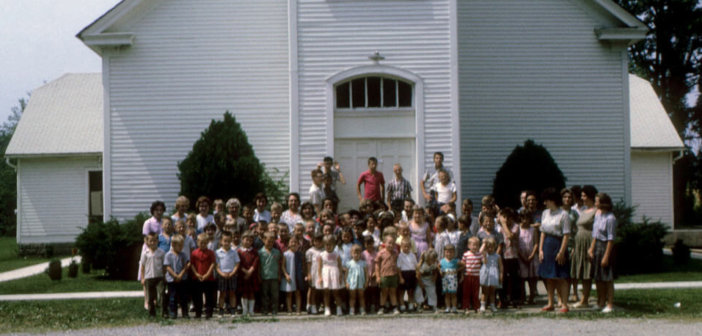Roger Lovette shares the touching story of returning to the first church he ever served, thirty years later, to find they had finally acted on his recommendation to relocate to a more desirable location. The story is a reminder that change takes time and, more importantly, that transformative ministry continues along the way, keeping church going and making it holy ground.
The first church I ever served called and asked me to come back and preach one Sunday. It was as rural a church as you have ever seen. And I was a city boy. And my wife was a city girl. This little church with a tiny steeple sat on a side road of old Highway 54. When it rained, water would cover the parking lot and almost get in the building. On those Sundays, since we couldn’t get there, we called off church.
Why not move?
I proposed a simple solution. Why don’t we just move? Move somewhere on the new Highway 54 where all the cars pass by and we’d be away from all this rising water. After I made my proposal, the Deacons didn’t say anything. They just sat there. Silence. They looked horrified and looked at me as if I had lost my mind. Move the church? Well, we didn’t. And one day I moved on.
Then, almost 30 years later, they called me and said, “Guess what? We have built a new church up on the new highway.” (Huh? “Why didn’t you do that years ago when I was your pastor,” I was tempted to ask.) “The reason we are calling is that we are having a celebration of the new church, and we want you to come and preach and help us celebrate.” And I did. My wife and I had an enjoyable time seeing old friends and remembering. And the new church was beautiful.
Suspended in time
As I left, they gave me a video of the last service in their hundred-year-old building. Back at home, during a time in my ministry when I had pretty much given up on church in general, I watched the video one evening. The last service was on a Sunday night. They gathered that evening in June to tell stories about the Dawson Baptist Church and what it meant to them. They filled the house that night.
In the video, little had changed. It began by showing the tiny white clapboard building with the gravel parking lot. There was a steeple with a bell and a cord hanging down in the vestibule that somebody rang every Sunday. As the camera moved inside, you could see they had bought new pews from another church that did not quite match the decor. Sure enough, there were the two cursed, ugly Warm Morning heaters at the front that kept the place too warm or not warm at all. Through the years, bits and pieces of colored glass had been knocked out of the gothic shaped windows and replaced by other pieces of glass that did not quite match. In the center stood the pulpit with the pulpit Bible that Midge Sadler had given in memory of her oldest son and her husband who were killed in a terrible automobile accident while I was there. On the right was the Hammond organ that Miss Jenny played just as slowly as she could. They always told me that Miss Jenny worked in the distillery all week, but, they added, she didn’t drink the stuff. Opposite the Hammond organ was the spinet piano. Behind the pulpit was a huge framed needlework piece of the Lord’s Prayer somebody had made. On the left of the pulpit behind the piano were the two rows where the choir sat.
Holy ground
That night, different members told what had happened to them in that special place. They remembered their own baptisms in the creek and when their children had been dedicated to the Lord. Someone told about their bout with cancer and how the church gathered around them and loved and prayed. A proud member told of how they took up money and sent one of their girls off to college because she had no money. She became a missionary. They remembered revivals and Vacation Bible School and losing jobs and coming together after a long hard week in the fields. Mostly, it was personal stuff. In that little frame church on a side road, for a hundred years they had found something that kept them going.
As I finished watching the video, I sat there in the dark brushing away the tears. For they had reminded me that what happened there had made that place holy ground. And that even though I was having a challenging time in my own life, I needed to remember all the things that happen through the years in churches everywhere.
This will be remembered
I was reminded of the woman who pushed her way through the door of Simon’s house and broke open a very expensive jar of perfume and anointed Jesus’s head. Those looking on were horrified, but Jesus said of what the woman had done, “This will be remembered.” What happens in churches should be remembered.
Going back to my old church to preach helped restore my fragile faith. What had happened there through the years was important — maybe more important than all the not so good things with which all churches contend. In remembering, I was also challenged to break open my own flask of perfume and pour it out for the glory of God.
This article is adapted from a post on Roger Lovette’s blog rogerlovette.blogspot.com. Used by permission.
Related Resources
- A Love Letter to a Closed Church by Roger Lovette
- A Better Script for Small Churches by Lewis A. Parks
- The Soul of a Small Church by Lewis A. Parks







